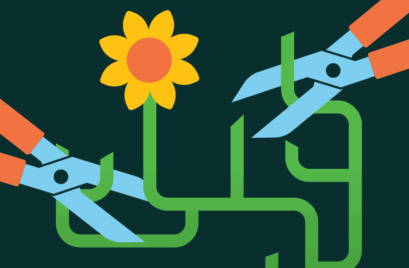
As the end of the year approaches, for many of us the workplace is getting more intense. This, coupled with a precarious market environment, means one thing: stress. In trying to manage the competing demands placed on you, we think it is worthwhile to reflect on the following question: Are you recharging, or are you coping?
Because there’s an important difference.
What might that difference be?
We all engage in activities that give us short-term relief but are not aligned with who we want to be, or even what we really want to be doing. From doom scrolling to playing the blame game, these sorts of behaviours are hard to avoid. They fall within a group of predictable actions we engage in because they provide a momentary release of tension or a hit of dopamine. But is that how we want to deal with stress and are they really helping us manage our emotions in the long term?
Psychological research has found that most people have a “set of relatively stable traits” , which determine how we respond to stress. This means we go back to the same approaches again and again when the pressure is on. One the one hand, this might seem like we’re stuck, but it also means that we have predictable patterns that we can anticipate and prepare for. By getting ahead of the cycle, we can move out of reactive coping strategies into proactive ones – into recharging.
Coping behaviours are actions that provide immediate stress relief and are grounded in accessibility.
Recharging behaviours are actions that replenish us sustainably and are grounded in our values.
Recharging has a double advantage then. It is a more long-term strategy, and it is aligned with the person we want to be. Its major disadvantage is that sometimes it’s not right there in front of us – like coping strategies. It isn’t always as easy.
In the workplace, coping behaviours don’t only impact on us individually – they have a ripple effect. Some of the coping strategies we see coming up during troubled times at work might include:
- Politics (i.e., ‘playing the game’)
- People pleasing
- Siloism
- Blame
- Avoidance
- Gossip
Unfortunately, these sorts of toxic behaviours are the biggest driver of attrition in the workplace. While they can help us relieve some immediate stress, they can negatively impact both ourselves and others’ experience – and wellbeing.
So, what are some recharging strategies we can adopt instead? Flipping some of these behaviours, there are a range of actions that will also alleviate our stress and provide the positive energy we need to help us recharge.
Making the Switch
In order to make the switch from coping to recharging, we need two things: awareness and preparation. Awareness means noticing when we are feeling depleted and liable to slip into these coping behaviours. If we notice this, we can put into action our recharging strategy. Awareness is about developing a practice of self-observation. This is best started by reflection on previous experiences – when we have noticed ourselves becoming overwhelmed previously. As we begin to identify the triggers and signs, we can bring this lens of awareness into the present moment and see when they are coming up in real time.
Next, we need to be prepared to deploy our recharging strategies. Because these strategies demand a bit more time, we want to set ourselves up to be ready to go. Here are four ways to prepare:
- Program in some regular reflection time where you think about your (leadership) purpose and your values. How are you putting them into practice? What course corrections do you need to make? Get concrete about the behaviours you want to enact. Just by thinking about purpose, we gain energy around our day-to-day life. Taking values-based action also strengthens our mental health. Put this time into your calendar on a fortnightly basis.
- Convene your A-team – a mentor, trusted advisor, friend or group. Connecting with trusted peers allows us to gain perspective and reground ourselves in our aspirational self rather than our fallback self. Consider regular catch ups or a loose pre-arranged agreement to have a coffee when things aren’t going quite to plan.
- Set up a reoccurring opportunity for celebration and connection within and across teams. This helps fight back against that tendency to stay in silos and isolate and creates the space for regular non-work-related connections. Connecting as people, rather than as job titles, goes a long way to not only making everyone feel better but also reducing some of those more negative coping strategies.
- Take a break – Finally, take a break and get away from it all. A few days of annual leave provides space from the stress environment and can make a significant difference to your headspace.
By having some of your recharging strategies in place ahead of time, you can draw on the well of recharging seamlessly when things are starting to catch up to you.







